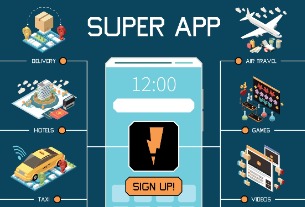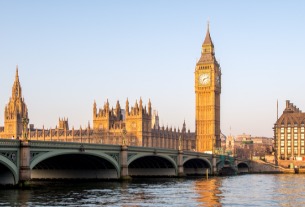A Series of Q&A interviews with innovators operating at the intersection of consumer behavior and business transformation: Frederic Lalonde, Founder and CEO, Hopper, a mobile app that predicts airline and hotel prices, allowing travelers to save up to 40%. To date, Hopper has helped 30 million travelers book trips around the world, saving them more than $1.8 billion.
Rogers: When did you start the idea for Hopper and how did the concept evolve?
Lalonde: Hopper was started over a decade ago in 2007. after spending some time at Expedia, I was in shock at how little the category had evolved. Digital travel – travel sold online is an $800 billion global marketplace. And mobile, the segment that we’re in, is about $270 billion. So, for scale, ride-sharing is about $40 billion. So, this is a gigantic market.
And, of course, it’s fragmented. There’s no Amazon of travel. The biggest company has a 10 or 12 percent market share. But, it’s also something that’s kind of boring. The category today looks a lot like it did in 1997.
We started on the web before we pivoted to mobile. It was about aggregating a lot of airline data and a lot of discovery data to answer the query, “Hey. I want to go direct-flight to a beach for $300.00.” So, this mythical discovery use case, it turns out, didn’t work. But, in the process of building that, we discovered that people had an unlimited amount of anxiety around when to purchase a ticket.
And all those online travel agents that played with forecasting, nobody had really taken the customer-centric view and built up the dataset to do it. So, if you look at our history, we’re in year-five of being a consumer app itself and have revenue, but it took us six years and we spent almost $12 million building the data infrastructure to prior to that.
It’s because we’d aggregated data that had never been pulled out of the legacy systems. We actually found a new dataset – that had been around from the 1960s, but nobody ever thought was valuable. The companies that we bought this data from were throwing it away.
It took us years to get these deals together and build the infrastructure. We were making our own servers. We had no clear path to revenue and no clear path to monetization. And then we released something on the web and we were very, very quickly told that airlines didn’t really appreciate us sending them free customers. (Laughs). Back in those days, mobile was 12 percent of the category in terms of transactions. So, it’s not like today where it’s half. I had the chance to work a lot in India when the cheap Android phones hit the market. We saw online travel in India go from 12 percent mobile to 60 percent in one quarter.
So, I made a really crazy bet. After all this time in building a website that people wanted, we shut it down and we built an app. And then we released it in the Apple store.
Rogers: What was the business model?
Lalonde: We weren’t selling tickets, it was just the prediction and the advice. And the idea was very simple. It was: We know the future. Don’t shop for your own airfare. We’ll send you a push notification when things change. And, today, for scale, we send over a billion push notifications. Ninety percent of our revenue comes directly from these push notifications. We sell in 126 countries. And the app is used to track about $18 billion in travel. So, it is a very, very successful value proposition to say, “Don’t do any work and save money.” [Laughs].
It’s what consumers want. Taking a completely different approach on the phone opened up what turned out to be conversational commerce. And I don’t mean a bot, I mean having a long-term dialogue over this new technology. Because the phone is a personal device, it created a completely new type of environment, completely new user acquisition. So, everything about Hopper looks like nothing that I’d seen before in the web world, and it’s why we’re only app-only. But, fundamentally, the genesis remains the same. It’s about using data to create trust and transparency to help consumers, and then assume that through this trust commerce and revenue will happen.
Some 70 percent of what we send to our app users tells them not to buy. So, we are an e-commerce company that spends 70 percent of its resources convincing customers not to transact on us. And we don’t make money in any other way. We don’t do advertising, never will. So, it gives you a sense of how differently we’re built in terms of philosophy.
Read Original Article




